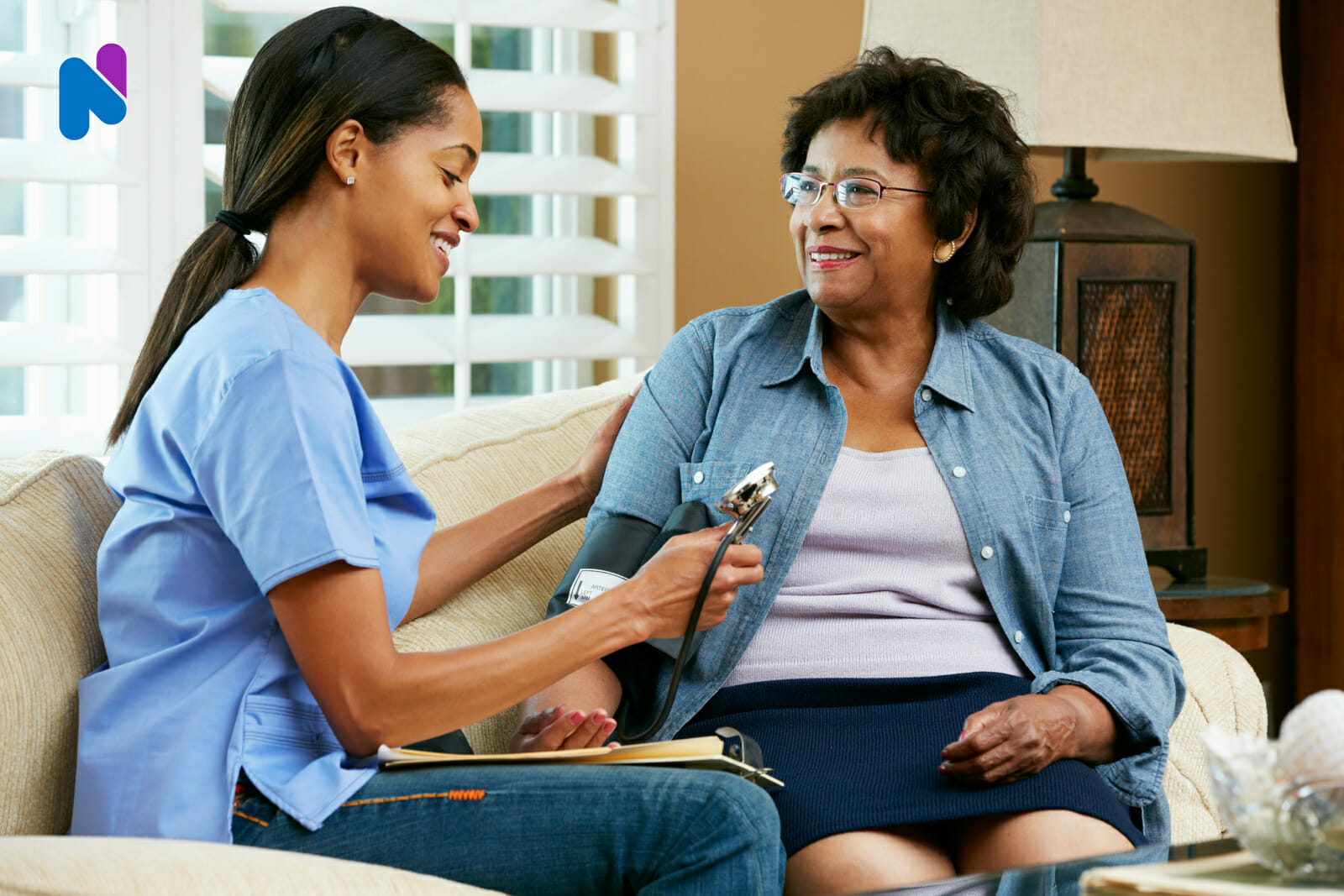An in-home nurse provides care in the home of patients who are usually elderly or disabled. However, some patients may also be recovering from an operation or accident.
An in-home nurse primarily assists patients with a range of specialized medical care. These care services include medication management, IV therapy and wound care. They may be required to work shifts and the job may also involve on-call work.
Many in-home nurses love their work because their day is far from the “typical” work day, making the career interesting and challenging. There are, however, some routine responsibilities and tasks that tend to be commonplace.
It is helpful for everyone involved—the client, the family and the in-home nurse—to understand what a day in the life of an in-home nurse entails.
What Home Care Nurses Do
IN THIS ARTICLE
Many patients who use in-home nursing care are unable to leave their home for treatment. Others receive nursing care at home as an alternative to treatment in a medical facility.
Both RNs (registered nurses) and LVNs (licensed vocational nurses) hold degrees in nursing and can provide in-home care for patients. Duties may include basic needs such as eating, bathing and dressing; as well as monitoring of vital signs and educating patients on health care.
Nursing Responsibilities
Home health care nurses help patients with cancer, Alzheimer’s or dementia, cardiac problems and other chronic diseases. They perform routine tasks like temperature, pulse and blood pressure readings, and can collect blood samples for tests.
Nurses can manage and administer multiple prescription medications, dress wounds, provide physical or occupational therapy, and monitor medical aids such as catheters.
Depending on the level of care required, a nurse with a more advanced license may be needed. For example, only RNs can administer IV therapies in the home.
Observation and Assessment
In-home nurses monitor their patients and make assessments for the client’s medical provider and family.They watch and look for:
- Adverse reactions to medications
- Changes in a patient’s behavior and/or normal daily functions
- Signs of a new medical condition
- Worsening health
Any changes are reported directly to the client’s physician and family. These updates can also be provided on a regular schedule of the client’s choosing.
Supervised Independence
Clients who are able to take advantage of in-home nursing care prefer it over a stay in a skilled nursing or rehab facility. They receive a higher level of independence while still under supervised care.
Those who are disabled or elderly are grateful they can stay in the security and comfort of their own home. They have a greater sense of both emotional and physical well-being. Homebound patients do not feel as isolated if an in-home nurse is there to provide a level of companionship through conversation and care.
Other Duties
An in-home nurse may give advice, educate and train clients and their families on how to:
- Use medical aids and equipment
- Give or take medications
- Manage side effects of medications
- Adapt their diet and exercise to their current condition
- Cope with changes that need to be made to the home environment
The need for in-home nurses continues to rise, and the career can be an extremely rewarding one. At NurseRegistry, our mission is to match compassionate nurses with clients who require their assistance and to improve each client’s life.
In-home nursing care is available for people of all ages, from infants to seniors. Skilled nursing can enhance the quality of life for people who elderly, disabled, or terminally ill.
Nursing care can be provided on an as-needed or long term basis.
Next Steps
Are you looking for in-home nursing care for yourself or your loved one? Here are 8 questions you should ask each home nursing agency you contact.
If you are interested in learning more about our nursing care services, contact us at 650-462-1001 to learn more.
If you are an RN or LVN interested in becoming an in-home nurse, apply online and our Recruiter will contact you.





